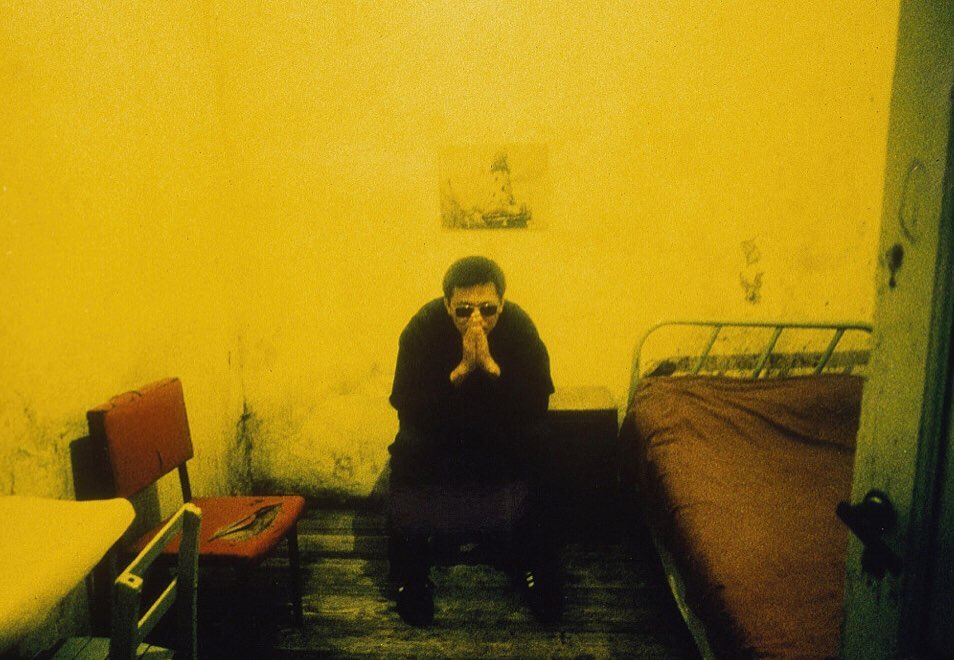
What is "The Wong Kar-wai revolution"
par remi mourany
·
_Born in Shanghai in 1958, Wong Kar-wai immigrated to Hong Kong at the age of five. He excelled in his studies and graduated from the local Polytechnic School in 1980. With a passion for cinema, he then joined the Production Training Course at the television channel T.V.B. In 1982, he left T.V.B and became a screenwriter.
Among the ten scripts he wrote between 1982 and 1987, notable works include "Once Upon a Rainbow" in 1982, "Chase a Fortune" in 1985, and "The Final Victory" in 1987, which was directed by Patrick Tam. An unconventional filmmaker, Tam encouraged Wong to pursue directing and would exert a significant influence on his future work, particularly regarding the importance of artistic direction and editing, which he would regularly oversee in Wong Kar-wai's subsequent projects.
_In 1988, Wong Kar-wai made his directorial debut with "As Tears Go By," a deviant crime film that introduced Maggie Cheung and Jacky Cheung. Notably, the film was presented at the Cannes Film Festival in 1989 as part of the Critics' Week, marking the first time a Hong Kong film had achieved such recognition since Ann Hui's "Boat People" in 1983.
To understand the significance of the Wong Kar-wai revolution, it's important to contextualize the era. Hong Kong cinema had been operating under a dictatorship of genres since the early 1960s, with genres being exploited until they exhausted the audience's interest, leading to the rise of new trends. Wuxia films, contemporary martial arts films, and comedies had all taken turns dominating the industry for twenty years until the emergence of the "New Wave" in the late 1970s. This movement was spearheaded by a generation of auteurs who challenged the established genre conventions, a movement that lasted for about four years. However, by the time Wong Kar-wai began directing in 1988, the situation had deteriorated. The iconic figures of the 1980s generation faced significant challenges in realizing their projects.
Facing this situation, Wong Kar-wai sought to establish a cinema radically opposed to the prevailing narrative codes. Following his debut film, he delivered a true masterpiece with "Days of Being Wild" in 1990. Despite featuring some of Hong Kong's biggest stars, it didn't find much favor with the Hong Kong audience initially, but it definitively established him as a major auteur in the local cinema scene.

After a long period of silence, during which he tirelessly sought funding for a new film, he finally directed "Ashes of Time" in 1993 and 1994. Presented at the Venice Film Festival in 1995, it won the award for Best Cinematography, credited to Christopher Doyle, Wong's trusted cinematographer. This ambitious film perfectly encapsulates Wong's cinema: a skewed vision of a major genre in Hong Kong, a cast of unstoppable stars, and meticulous attention to every detail. While "Ashes of Time" was in post-production, Wong Kar-wai shot "Chungking Express" in just a few weeks, a nervy film shot with a handheld camera that signaled a new direction in his style.
_Indeed, Wong Kar-wai further solidified this direction with "Fallen Angels." Subsequently, he directed "Happy Together" in 1997, which was filmed in Argentina. It portrayed an emotional and poignant account of passion and suffering between two men, earning Wong the Best Director award at the Cannes Film Festival the following year. His international acclaim reached its peak three years later with "In the Mood for Love" in 2000 //
"Peruse our assortment of T-shirts inspired by Wong Kar Wai and his films>> HERE









